A Voice of Many: Modern Slavery Today
July 30th is World Day Against Trafficking in Persons, and this year we invite you to learn more about the realities of human trafficking and modern slavery that represent a sad figure for children impacted by these horrible crimes. By reading and sharing this story to help raise much-needed awareness to encourage governments, local authorities, companies, charities and individuals to do what they can to address the problem.
We start with Zimal’s story to illustrate the realities of modern slavery.
Thank you to Daria Toschi for this contribution.
I am Zimal and I have a dream.
Hi,
I am Zimal from Pakistan. I am 16-years old and one of the 15 million people employed in the textile industry in this country. Every worker in this industry has their own life and their own dreams, and today I want to tell you a little about mine.
I was given the name ‘Zimal’ by my friends who work alongside me in the factory. In our language, the word ‘Zimal’ is also used to describe a large piece of cloth that can be used to cover the entire body, hiding the wearer from view. Sometimes I feel like this name fits me well as I work each day invisibly in the same factory cutting and sewing glamorous clothes for people living far away who will never know me. For five years, I have entered the same turnstile each morning before dawn, not knowing what time I will be allowed to go home and each week not knowing if I will be paid the wages owed to me. If I speak up, nobody will listen, so I continue to be invisible and work to scrape together what little money I can to send back to my family.
Every month I sneak out of the boarding house to go to the market and rummage through the massive pile of second-hand clothes once loved by fashionable people in faraway countries. I rummage for hours in the hope of finding a few pieces for my sisters and me to proudly wear secretly at home when we play, “If I were free, I would wear…”
But I hardly find anything that is worth my pennies. The skirts, jackets, tops, sweaters, shoes, and accessories that make it here are usually so dirty that it would take a massive amount of soap, sweat, and tears to make them shine again. Besides, we are often not paid for our work, or if we are, then our money is taken from us to pay off debts that we took on to get work in the factory. Buying clothes for playing dress-up is not an option for us most months.
If I were free, I would buy every beautiful item and start my own business where we would take second-hand clothes that were once loved and give them a new life. My sisters and I would create stylish new pieces that so many others would want to buy. We would employ a workforce and give everybody fair pay and fair hours, creating freedom for many others who now live as I do, in fear.
So, this is my dream, to be invisible no longer.
But this opportunity seems far away from me now, as I am trapped working for an employer who will always want to control me and stop me from ever leaving this life.
For as long as I am in this situation, I am Zimal, the ghost-like girl who will keep rummaging at the Sunday market to keep herself alive with the illusion that, one day, she will create a new tomorrow for the women of her country.
It is my hope that by sharing this story, the many millions of people like me will someday become visible.

The Reality of Modern Slavery and How You Can Support
Stories like Zimal’s are the reality for millions of people across the globe who are trapped in modern slavery. People are exploited through debt, fear, and coercion and may often see no way out of their situation. However, the world has woken up to this issue, and there is a global drive to create workplaces that empower workers who are to be free from exploitation and abuse.
While it may be tempting to shift blame onto particular brands and industries for the existence of this issue based on one or two news articles or hearsay, many companies are engaged in positive action in this space that goes unnoticed.
At the Mekong Club, we work positively and collaboratively with companies who are striving to strengthen industries against modern slavery. This may be through putting mechanisms in place to ensure that workers can safely speak up about their conditions, training staff and suppliers on worker rights, and investing in community initiatives to support education and healthcare.
Take action today to support victims of human trafficking by sharing Zimal’s story. Consider donating and make a difference this World Day Against Trafficking in Persons.

